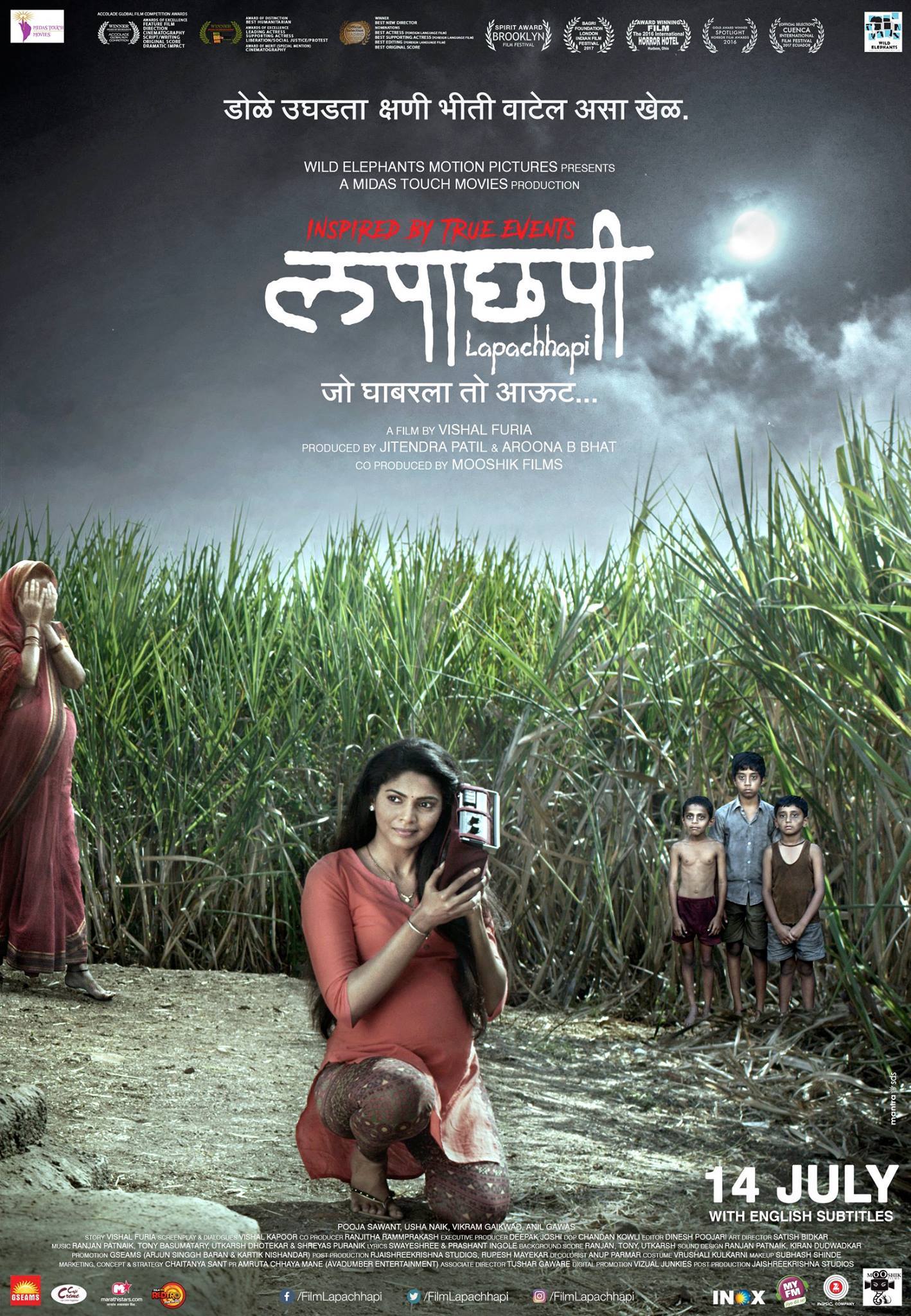By Pranav Joshi
In the Ramsay brothers’ campy yet eager-to-thrill horror series for 90s cable television, there is one peculiar segment called Tadap. The premise as usual is hackneyed and its treatment, even more ludicrous. A young man returns to his village after a hiatus, only to find the blue-eyed spirit of a sickly old woman haunting the streets in the dead of the night. She is a beggar in rags, only at first glance. People, a majority of them being males, sympathetically approach her with water, when they hear the echo of a harrowing plea – “Mai, Roti De De”. They soon meet their end, as she brutally devours their very soul instead. Yet the Ramsay brothers, in their eccentric form, manage to vindicate even this blood-curdling phenomenon. The undead woman, in a protracted backstory, supposedly suffered the wrath of the district’s evil Thakur and was neglected even in abject poverty by an apathetic village. And now she has returned to exact revenge, unless her soul is put to rest by offering her what she longs the most — food. And thus another horror story flaunts genre credentials only in name, itself fearful to really toe the line.
Vishal Furia’s Lapachappi (Hide & Seek), though noble in purpose and earnest at heart, similarly loses its potency and rigour to frustratingly banal plotting and sanctimonious overtones. By way of a poorly written introduction, the film contrives to fleetingly bring its principal characters in an isolated setting even before they are wholly fleshed out.
Pooja Sawant plays Neha, a woman eight months pregnant accompanying her husband Tushar to a reclusive hideout far away from the wrath of loan sharks. Her husband, essayed by Vikram Gaikwad, curiously leaves her alone in the care of Tulsabai (Usha Naik), a homely woman, albeit with dark secrets of her own. As Neha increasingly tries to remain optimistic about her child’s birth, she can’t help being unsettled by Tulsabai’s overbearing presence, even as the latter’s bitter prejudices gradually reveal themselves. She is also irked by the egregious treatment Tulsabai metes out to a mute woman despite claiming her as her own daughter-in-law. The house she stays in resides deep within a plantation farm stretching out for miles. Her relative isolation, anxiety and the uncertainty of impending childbirth hardly shake off increasingly ominous feelings. Tulsabai admonishes her one day when she reveals she saw a child scampering around their house and the former’s demeanor changes drastically. As Neha starts encountering the children more often, Tulsabai unravels a horrific past and insinuates that a curse has befallen Neha putting her unborn child in danger. Can the urbane, free thinking Neha bend to Tulsabai’s whims or is it too late for her to escape a malevolent fate?
The film establishes early on its intentions to weave its narrative around Neha, but it does it in a way so perfunctory that pacing, rhythm and even tonal consistency elude almost the entirety of the first act. Furia tries in vain to induce palpable dread in many scenes as Neha first explores the morbid stillness of the plantation around her, or when she’s left to fend for herself because the villagers unwaveringly uphold their macabre practices in the name of tradition. Haphazard editing and poor characterization rob enormous potential from most of Neha and Tulsabai’s confrontations.
The portrayals of the two women though lend much needed acuity to the otherwise uninspiring plot. Pooja Sawant imbues Neha’s grit and perseverance in subtle ways, never resorting to histrionics even when her character is driven to the brink of sanity. Usha Naik’s assiduous attempts at a layered performance are unfortunately hampered by the writers’ bland tendencies to strip Tulsabai of nearly all complexity, until she becomes mere caricature. Vikram Gaikwad, on the other hand is given little to do as Neha’s husband, even after a hasty plot twist.
The writers’ humdrum obsessions with shocks and thrills blatantly disregard a daunting quest to create truly beguiling nightmares out of endemic social prejudice. The direction also eschews lingering moments of unspoken terror or angst, instead saddling the narrative with clunky exposition. The narrative arc of Neha’s beliefs being vociferously contested by supernatural phenomena explores only some contours of her sub-conscious when it ventures into everyday existence. Even a slightly nuanced examination of the embittered psyches of both the women would have lent much subtext to the horrifying visions Neha experiences, contrasting them with Tulsabai’s fanaticism. Neha’s life-threatening ordeals change her sense of reality forever. Yet the fragile mental state of a mother-to-be is acknowledged only in the light of the larger social evils she uncovers — it hardly assumes a life of its own. A recurring motif is flaunted so often that it comes across as artifice, unable to offset the starkly unimaginative cinematography.
As the film hurtles towards a weak climax, the deafening shrill with which it puts across a message of goodwill hopes to brush over the trite aspects of the genre it gleefully dabbles in — jump scares accompanied by a distractingly loud background score. What it fails to realise, even in some barely striking moments, is that genre is as fickle as it is profound. If rendered thoughtfully, it can often transcend, rather than constrict, the very subject it tries to illuminate — revealing inescapable truths with far-reaching ramifications. But the film overlooks much more that the interiority of its characters’ minds, in its chase of the perfect scare.
Lapachhappi, a film which otherwise does not lack righteous fervour, loses track of its own terrain while playing the game it is named after, giving itself away too early and easily.







Leave A Comment
You must be logged in to post a comment.